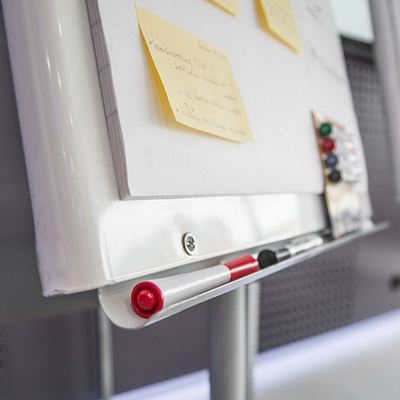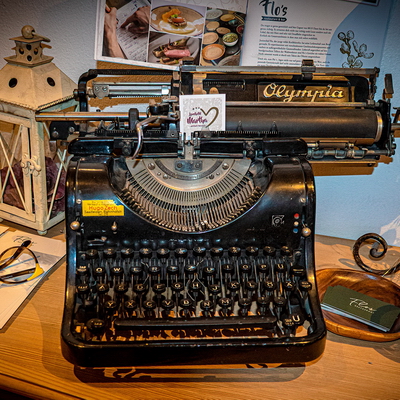
|
 Writer Officina Blog
Writer Officina Blog 
|
  Manuale di pubblicazione Amazon KDP. Sempre più autori
emergenti decidono di pubblicarse il proprio libro in Self su Amazon KDP,
ma spesso vengono intimoriti dalle possibili complicazioni tecniche. Questo
articolo offre una spiegazione semplice e dettagliata delle procedure da
seguire e permette il download di alcun file di esempio, sia per il testo
già formattato che per la copertina.
Manuale di pubblicazione Amazon KDP. Sempre più autori
emergenti decidono di pubblicarse il proprio libro in Self su Amazon KDP,
ma spesso vengono intimoriti dalle possibili complicazioni tecniche. Questo
articolo offre una spiegazione semplice e dettagliata delle procedure da
seguire e permette il download di alcun file di esempio, sia per il testo
già formattato che per la copertina. |
  Self Publishing. In passato è stato il sogno nascosto
di ogni autore che, allo stesso tempo, lo considerava un ripiego. Se da
un lato poteva essere finalmente la soluzione ai propri sogni artistici,
dall'altro aveva il retrogusto di un accomodamento fatto in casa, un piacere
derivante da una sorta di onanismo disperato, atto a certificare la proprie
capacità senza la necessità di un partner, identificato nella
figura di un Editore.
Self Publishing. In passato è stato il sogno nascosto
di ogni autore che, allo stesso tempo, lo considerava un ripiego. Se da
un lato poteva essere finalmente la soluzione ai propri sogni artistici,
dall'altro aveva il retrogusto di un accomodamento fatto in casa, un piacere
derivante da una sorta di onanismo disperato, atto a certificare la proprie
capacità senza la necessità di un partner, identificato nella
figura di un Editore. |
  Scrittori si nasce. Siamo operai della parola, oratori,
arringatori di folle, tribuni dalla parlantina sciolta, con impresso nel
DNA il dono della chiacchiera e la capacità di assumere le vesti
di ignoti raccontastorie, sbucati misteriosamente dalla foresta. Siamo figli
della dialettica, fratelli dell'ignoto, noi siamo gli agricoltori delle
favole antiche e seminiamo di sogni l'altopiano della fantasia.
Scrittori si nasce. Siamo operai della parola, oratori,
arringatori di folle, tribuni dalla parlantina sciolta, con impresso nel
DNA il dono della chiacchiera e la capacità di assumere le vesti
di ignoti raccontastorie, sbucati misteriosamente dalla foresta. Siamo figli
della dialettica, fratelli dell'ignoto, noi siamo gli agricoltori delle
favole antiche e seminiamo di sogni l'altopiano della fantasia. |
|
|
|
|
|
|
Conc. Letterario
|
|
|
|
Magazine
|
|
|
|
Blog Autori
|
|
|
|
Biblioteca New
|
|
|
|
Biblioteca Gen.
|
|
|
|
Biblioteca Top
|
|
|
|
Autori
|
|
|
|
Recensioni
|
|
|
|
Inser. Estratti
|
|
|
|
@ contatti
|
|
|
Policy Privacy
|
|
 The Oath
The Oath 
|

 This is a totally conceived story: and it wants to highlight what can happen to each of us, when you have relations with perjurers.
This is a totally conceived story: and it wants to highlight what can happen to each of us, when you have relations with perjurers.
Who, like some of the characters, takes an oath on the coffin of a loved one, pledges his conscience and his honor; and in doing so, he promises to fulfill the obligations assumed, and to maintain behaviors of solidarity between brothers, linked to memory, until the end.
The protagonist will behave like this; but they will not, three of the brothers who swore with him; they had no faith..., and over time they ruined his existence.
At the beginning of the story, the protagonist, Francesco Studiante, and his brothers, are young people, and nothing else.
First with one and then with the other two, together, Francesco will have to deal with for many years; the ravenous selfishness, however, aroused by the enormous amount of money earned through lucky ventures, made the three forget how much they made him hope.
With daring behaviors, the three, in turn, and throughout the story, carry out evil and fraudulent actions: setting up false pretexts and non-existent motivations, but with extraordinary effectiveness, on the soul of a good man like Francesco.
Towards an honest man, the wicked always begin by deceiving him with false promises, and showing him the utmost consideration, but they already have in mind, properly concocted, a diabolical plan: aimed at deceiving his good faith.
And they succeed.
Loyal people never receive any credit in life, but they can look in the mirror without spitting in their faces.
The three, did they pretend to swear? To Francesco..., the doubt remains.
Will time give him the right answers?
The Oath
(... Someone touch Cain!)
-I spoke a little while ago with Don Nicola, and he told me that he is expecting you for tomorrow afternoon, at four o'clock! - My wife Olympia tells me, just back from Mass.
- Eh..., mah..., is it really necessary that I go and talk to a priest? What do I tell him? - I answer undecided.
- You go there..., and tell him everything; unload to him everything you have inside, and you will see that you will come out more serene, and your rancor will end; his words will be able to cheer you up, and above all reassure you, as happened to me, after I told him about our current condition.
- He is a holy man, you know, and with him it is like talking to Jesus our Lord; you will see that, in the end, with his words and his fraternal advice, he will be able to lighten your soul; and it is what we both need, to return to living peacefully, now that we are elderly; please, go there! - She finishes.
- Okay, as you want..., tomorrow I will go! - I answer, not convinced, but more to keep her happy, than anything else.
The next day I enter the church, a few minutes before the agreed time.
The church is small, is on the outskirts, and is dedicated to the Madonna Del Carmelo; quite far from the inhabited center of my village, Saviliano, but quite close to the farm that was owned by me on the Serralonga plateau: where my family and I have lived for many years.
Taking to attend this parish, more for ease of travel than for anything else, Olympia had had the opportunity to meet the parish priest, don Nicola, being fascinated by the simplicity of her ways and by the spiritual transport that she induced with her homilies; and I began to frequent it too.
The church is empty, except for a lady who prays, sitting at the first pew, and another who, seeing me, comes to meet me and asks me: - Do you have to confess? -
- No..., but I have an appointment at four with Don Nicola! - I reply promptly.
- Don Nicola is in confession...: in the meantime, take a seat here! - She tells me, pointing to a chair placed outside the entrance to the sacristy.
Before the woman goes away, I tell her: - If you have the chance: let him know that Francesco Studiante is here, thank you. -
- Now I can not, but as soon as the person who is confessing comes out, I tell him! - She reassures me, and then going to sit next to the lady who is praying, and starting to talk to her.
Several minutes later, the door of the sacristy opens and a gentleman comes out; the man smiles at me: "You must have been absolved of your sins!" I think, responding to her smile.
Immediately afterwards the lady enters, and leaves almost immediately going directly to speak with the other, who, despite having resumed praying, makes a gesture of annoyance on hearing what is reported to her, and comes back to me: - Can enter! - She tells me, and then closing the door behind her.
The sacristy, I've never entered in one in my life, has all the features of a professional studio; the desk is placed in the center of the room, with a black leather executive chair on one side, and two for guests on the other; a crucifix and a photo of the reigning pontiff hanging on the wall behind; the computer turned on, put in stand bay; a wardrobe with four doors, two of which with smoked glass, a sitting area in brown leather on the
turned on, put in stand bay; a wardrobe with four doors, two of which with smoked glass, a sitting area in brown leather on the other side, and a hanger on the side of the front door; an office...: as I had them, in the years of my activities.
Don Nicola, a small man with a beard and hair both short and white and wearing a chasuble and stole, is sitting at his desk, reading what, at first glance, seems to me to be his breviary.
Hearing me enter and close the door, he looks up and smiles at me; a reassuring smile appears on his face, and I see it in his eyes too.
- Over the years I have learned to understand immediately what these fantastic organs transmit, looking at you. -
- Good evening Don Nicola! - I say entering.
- Good evening Francesco! - He replies kindly, and then: - We haven't seen each other for quite a while! If I'm not mistaken... it will be at least four Sundays since I don't see you at mass; what is it, you don't get along with Jesus anymore? He-he tells me, approaching me and warmly shaking my hand.
- I have the impression, Don Nicola, that Jesus has forgotten me: and for a long time! - I reply him, immediately regretting such a statement.
- He does not forget anyone, Frank! He was waiting for you, and today he is coming to meet you; perhaps you did not understand it, but it is He who wants to listen to you, through this poor priest who stands in front of you; and that is why..., that you are here!
- This meeting was He who wanted it: and through your wife Olympia, who is part of his plan! - He says inviting me to sit in front of him, in the sitting room.
- Olympia..., without her I don't know how I would have done don NicÚ!
- With his help..., I managed to overcome very difficult moments for me: painful periods, studded with facts at the borders of human endurance!
-Without her, a sensitive and correct woman, ideologically honest, and her faith, - one open book, he had called her a sincere friend of hers-perhaps I would have committed rash gestures! - I say sitting down.
Don Nicola is still wearing the stole, and he asks me - Do you want yours to be a confession? -
- No..., don NicÚ! I need to talk..., and with someone who has no qualms about listening to me: necessarily even for hours; my story is long, don NicÚ: and the result is the miserable condition in which Olympia and I find ourselves today.
- Not so much that of an economic nature, mitigated in part by the just sufficient pension, but by that of being, despite everything, and in spite of ourselves, left without the contacts and affections, of that part that remains of my original family: my siblings. -
- I know, I am informed: Olympia spoke to me about this pain of yours, especially your, and I am here to listen to you; for the time...: what you will need.
- And in fact, foreseeing it, a little while ago, to the lady I should have confessed, I made her bring my apologies: begging her to postpone until tomorrow.
- I must necessarily start from afar, don NicÚ, because everything is linked; if I compared my story to a long chain, and removed one link from the center, the chains would become two, shorter, and the whole story would lose all dramatic importance; many sad situations, we have been forced to live for a long time, don Nicola, and to endure.
He nods positively and, taking off his stole invites me to tell.
******
⪡I ad must have fallen asleep again: I was traveling from all night long, when, once again, a loud metallic screech woke me up.
The train was slowing down: I also noticed, it, from that characteristic noise: that Thun... Thun... that was heard when the wheels of the carriage, in the direction of which, I was indirectly sitting, passed over the void, between one rail, and the next; the speed of the convoy was decreasing in intensity, and the time elapsed for the passage over the next void gradually increased.
We were passing through a tunnel, which, apparently seemed to me quite long, but which could also appear so due to the slowing phase of the convoy.
The carriage had its lights on, and there was no other traveler in my compartment; I got up, looked around, checked that my small suitcase was where I had placed it, and looked out into the corridor.
Two other travelers, perhaps also awakened like me by the same noise, had left their compartment and were standing in the corridor.
They were two young men, perhaps emigrated to the north Italy, who were returning home for vacation.
Two latecomers, I thought, since we were at the beginning of August, and the holidays had already started for several days: precisely since the big companies in the north had closed.
The working period in Italy, as you know, is conditioned by large companies that all of which close from the first day of the month; and all over the country, for everyone, the holidays start from that day: again today.
⪡On a moving train it is not easy to remain standing, if you do not lean against the compartment wall or place your hands on the window.
And I had leaned on that.
We were still in the tunnel: and the train's speed dropped further.
I didn't know where we were at that point of the journey, and I didn't even know if the train was slowing down for technical reasons, or because it was nearing a stop.
I lit a cigarette: my favorites of the time, the Supers without filter.
After a first puff, and before putting it back in my pocket, I checked the functioning of my lighter, a Ronson, which hadn't ignited the first time.
The corridor of my carriage, second class, was on the right side with respect to the direction of travel, and so I thought that if the train was traveling along the Ionian route, as soon as I left the tunnel I would see the hills; and if it had been on the Tyrrhenian route, the sea.
And that was what I wanted to see.
At last a reflection began to be seen, and shortly after, when the tunnel was finished, I saw the sea.
I was delighted to see: it calm and immense, of a dark blue, darker than my Adriatic.
The two travelers already in the corridor were joined by five or six other travelers; one of whom, placed by my side, anticipated that in a short time Sicily would be seen.
I looked at my watch: it was six o'clock and the sun was already high; just twenty minutes, according to the timetable, the train would arrive at the station of Villa San Giovanni, and then be ferried to Messina.
- Here is don NicÚ: that city was my destination.
⪡I was going to visit my brother Pasquale, an officer in the army.
My brother is older than me: I am the second in a brood of six.
It was our father, who proposed this to me; the previous month I had completed my high school diploma, and, so he, as a reward proposed that trip to me.
"Since your brother Pasquale he takes leave of the military, in three days, why don't you go there... so that you can come back together?" he had told me.
- I did not make me repeat it twice; I accepted immediately, and, running to the travel agency, I bought the train ticket for Messina.⪢
- In second class, don NicÚ: the money was very little.
- It wasn't the first time I went to see my brother; I had already gone twice, and always on my father's initiative.
- Don NicÚ..., I never asked for anything, I never did!
⪡The first time, I went there when he was a troop soldier in Palmanova, in Friuli, and the second time almost a year later, in Ascoli Piceno, where he was attending the course of Cadet Officers.
I had already as a kid, discovered that I liked to travel, especially if alone.
Traveling alone still allows me to observe, and memorize better, everything that my gaze has the opportunity to notice: from the landscape, to the crops and agglomerations of the territory that one passes through, to the people who travel with me or whom I meet in the places I visit.
I am especially interested in their behavior of people, signs for me of their culture that is more emancipated than mine, or not.
Traveling with your eyes open, as my father used to say, means this for me: emancipating your own culture; and it should apply to everyone.
Just as then: I looked at the sea, without neglecting to observe the other travelers.
Even today, I am not interested in people as such, since I soon forget them, but their stories and their behaviors and their education: those remain in my mind, and I treasure them.
⪡Of the first time, that I went to my brother, I remember that at the Bologna station, when my carriage was hooked up to the train to Venice, three women entered and sat down in my compartment; one in her fifties, and the other two young girls.
Resumed the journey, after the usual pleasantries about the destination and the weather and the duration of the same, up to the destination, my own, I started to smoke, watching the countryside flow by, flat like the Tavoliere di Capitanata, and they, started talking of work.
At a certain point the woman, with her story, attracted my attention; in a compartment of a railway carriage, despite all the good will, it is impossible not to listen.
She was telling the two girls and me too, about the hard work she had done when she was a girl, in the mid-fifties, of the '900.
She had worked in the rice fields of the Vercelli area as a picker, together with dozens of young women, for sowing, for the cleansing and finally for the harvest: and she continued to do so again; and in fact, she said she was coming home after the harvest season.
"It's hard work, especially when weeds must be pulled out, because you have to stay in the water up to the calf and you have to stay bent; the back it suffers, even if you are young!" he said.
Finally, a last "And then there were always some assholes of men who, on that position, made not very polite appreciations." "Fortunately, now, with the introduction of herbicides the work is outdated, and we are left with only the appellation of mondina!" her speech ended, and a faint smile crossed his face.
I resumed looking at the countryside, which ran fast; the panorama interested me, as still does today: to fully evaluate all that Mother Nature has created, and she has made available to us.
⪡A Palmanova, with my brother we saw each other only in the evening during his free exit, and together with two other fellow villagers, who were also soldiers.
That time, I slept in an inn run by Dalmatian refugees; the room was cold and unheated, and the sheets were frozen.
I still remember today, how frozen those sheets were.
I spent the days - three - visiting the places, until even came to visit the shrine of Redipuglia.
In the huge and majestic shrine, one hundred thousand Italian soldiers of the Third Army, who died in the First World War, are buried, together with their Commander: Emanuele Filiberto di Savoia, Duca D'Aosta.⪢
- Sixty thousand of those heroic soldiers are unknown, don NicÚ!
⪡Slowly climbing each of the huge steps, that make up the Shrine, I was able to read many names, so it seemed to me, of southern origin: of that part of Italy, which, had it not been for unity, not have participated in the carnage, and his young sons would not remain innocent victims, of an enemy that most of them didn't even know them.
I moved with the utmost respect, as the place demanded, thinking of how many of those boys of my age who had sacrificed their young lives, and who lay there forever.
Up, at the top of the Memorial, there is a small museum in which various and innumerable relics are kept, that in that tragic period were in common use by those unfortunate boys: weapons of various kinds, bayonets, spoons, mess tins, gas masks and more.
One in particular struck me: a bicycle used by cyclists Bersaglieri.
That means, they needed to move quickly on the roads to reach the front, or any other place of confrontation; finished the roads, or the paths with these passable, the bicycle was folded, and everyone carried it on his shoulders.
A helmet also caught my attention: which had a hole in the front.
It was not difficult for me to imagine the effects, and the consequences on the head of the soldier he was supposed to protect.
A peaked cap and red headdress, with silver brigadier's general ranks, warned the visitor, or so it seemed to me, that some of them had also remained in the field.
As I walked away, and thinking of the pain of the mothers of those unfortunate men, I made up my mind not to forget them.
We must not forget them.
⪡The second time, in Ascoli Piceno; the weather was still summer, and I only stayed there a little over half a day.
I arrived early in the morning, and in the evening I had already left.
In that barracks the climate was very different from that of Palmanova: there, the soldiers were all officer cadets.
At the door, the picket officer, to whom I had introduced myself, kindly made me sit in the waiting room, and immediately sent a soldier from the guard to call my brother.
Pasquale arrived almost immediately, exchanged a few friendly words with the officer, and, with permission already in his pocket, we went out.
"Why didn't you salute the Lieutenant?" I asked him amazed.
"He is an officer of Complement, and he is a friend; he is a recommended, son of a big shot in Rome; and then, in three months, I too will be Second Lieutenant like him!" he replied.
"Here, all are recommended: as well as you!" I observed, with only the spirit of truth.
We had a laugh, and closed the subject.
In the meantime, I thought: "Who knows if when it's my turn, I'll have I too will have a recommendation that will allow me the same thing!"
The uniform that Pasquale wore was that of an infantry soldier: long-sleeved shirt and khaki-colored trousers, tie and beret with the infantry frieze; that he was an official pupil, was indicated by the initials A.U.C., in golden metal, applied on both the shoulder straps of the shirt.
From the phone booth of the driveway of access to the barracks, we called a taxi and drove to the city center.
⪡In Piazza del Popolo, a square in the center of the city, while we were sipping a coffee, sitting at the table of a very trendy bar, Pasquale told me that right there, a first time in July and a second time in August, the Quintana Tournament took place every year.
He had already witnessed both events.
By showing him my interest in knowing, he continued.
"The tournament is a historical re-enactment of medieval origin:
a parade of various characters in period costumes, complete with flag-wavers, drums and trumpet sounds, followed by a knightly tournament: a sort of equestrian joust!"
Urged, not before having lit a cigarette, he resumed: "It is a competition between knights, who on horseback, and with lance in rest, must take turns hitting a target placed on the left arm of the Moor!"
He first took a puff and continued: "The rotating statue is the representation of a Saracen; the knight must hit the target, and above all be fast!"
"The Saracen, by virtue of the blow suffered on the target, to discharge the energy received, rotates on himself, and if the knight is not fast enough in the passage, he can be hit by the Scourge!"
"Well...!" "It's noon, and now we're off to eat: let's go up to Mount Piselli... let's go to the mountains!" he decided, getting up.
I just had to follow him.
⪡The taxi took us up to San Marco hill, and then, there, we took a cable car to go up to the top.
The cable car advanced slowly: it was not a real chairlift, and the passengers remained standing in a basket with wire mesh walls, a little higher of the belt.
As we climbed we began to glimpse a magnificent mountainous landscape, and the air became increasingly fresh.
The cable car did not reach the top, but in the vicinity of a refuge: the top was about a hundred meters, to above.
At 1800 meters, so much was the altitude reached, the panorama was 360 degrees; on one side the Adriatic, and to the south, right next to it, another mountain a little lower and, further back, the Gran Sasso chain: the highest mountain in the Italian Apennines, which with its top, the Corno Grande, reaches 2912 meters.
Drawing my attention to the North-West, Pasquale pointed out another mountain range where the highest peak was Mount Carrier, which with its 2476 meters overlooked the others.
"That is the chain of the Sibillini Mountains; and it is there, on the plateaus of Mount Vettore that we cadets do our weapons drills!" he concluded, showing a hint of pride.
Soon after, we entered the shelter: because outside, the air was quite cool, almost cold.
As we entered, I was immediately struck by the lit fireplace.
"Here, at the beginning of September, at 1800 meters above sea level, it is as if you are on the plain at the end of October!" specified Pasquale.
⪡Leaning against the counter, there were two customers holding a glass of wine that sipping, and talking happily; maybe they were friends of the manager: I thought at that moment; some tables in the room were already set, and we chose one and sat down.
The manager, a rather stout middle-aged man, looked like a mountaineer; big mustache, black leather waistcoat, dark brown corduroy trousers, checked flannel shirt matching the trousers and with the sleeves rolled up to the elbow, and mountain boots.
After having a chat about the weather, and, with my brother, about military life, he took over and walked away.
The two of us, while we were waiting, lit a cigarette.
"I have the qualification of storm trooper, and my weapon is the MG 49-52: a light machine gun, with 1200 rounds per minute; it is so fast, that when I shoot in a short time the fifty-shot tape runs out; it's not like shooting a rifle, where you hear every single shot fired; this weapon, when it fires, is as if it were singing!" told me Pasquale, more than ever proud of his task.
"It's easier when you while on the ground, and with the gun resting on the stand; but when you shoot while standing, in a simulated attack, you have to place yourself well on your legs and keep the butt well placed at the side, to have a direction of stable and optimal shot!" and he finished, seeing coming the first courses: of Pappardelle with hare ragý.
⪡It was the first time I ate Pappardelle, and I must say that they were really excellent; while I had already eaten the hare sauce as a kid, but with Apulian Orecchiette.
While we were waiting for the second dish, Pasquale began to tell "Down in the barracks they told me that, with the end of the course and the appointment as sergeant A.U.C., my destination will still be Palmanova!" "I'll be back there again, but as a sergeant this time!"
"You will remain there as a second lieutenant?" I asked him eager to know.
"No!" "When I am appointed officer, I will have a short leave and I will come home, because I will also have to prepare my uniform: the Diagonale, as it is called, and there they will notify me of the new destination!"
The conversation is interrupted by the arrival of the second dish, steaming as well: mixed roast, with a side of peas, potatoes and boiled carrots.
After that we took no fruit or dessert, but went straight to the coffee; meanwhile, from the windows we saw that the weather was changing, and this worried us not a little: the fog had formed, and the sun was gone.
While we were lighting another cigarette, the last one in that place, I informed Pasquale of my program.
"Tonight I'm taking the train from San Benedetto del Tronto, and I'm going to Milan: tomorrow, in Monza there is the Italian Grand Prix of motoring; tomorrow evening, then, I'll take the train back home: end of the holiday, ah, ah, ah!" I finished amused. We left the shelter, and found ourselves shrouded in fog: the air was already quite cold.
A shiver went through me as we ran to the cable car, which was moving, and with one leap we climbed onto the downhill basket.
It was a real shame, that it was no longer possible to reach the top of the mountain: given the weather conditions, it was no longer possible to go there.
The air had become pungent, and we were wearing only a short-sleeved shirt, even if Pasquale's was heavier, and we were forced to rub our arms, to warm up at least a little.
Fortunately, going downstream, as the temperature it increased and the fog thinned out until it disappeared completely.
And the panorama, at least the one down, reappeared.
⪡In the city we found the heat we had left in the morning, and we walked for a while in the center; Ascoli, in addition to being beautiful, is also an ancient city, of Roman origin, and is crossed by the Via Salaria: one of the seven consular roads of ancient Rome.
After another coffee and three or four more cigarettes smoked, Pasquale accompanied me to the bus stop: I had to reach the coast to take the train.
"So bye, see you in early January!" he said to me, and went on "I don't think I'll get a new license before then!" and he greeted me by shaking my hand; he left immediately, because he had to go back to the barracks: the permit time was running out.⪢
- I loved my brother, don NicÚ, but we had not been taught that we could also greet each other with a hug; so, instinctively, I too reached out, and squeezed her, tightly, replying to his hello.
⪡In the station I waited a long time, and, a little under the roof or outside, I saw numerous trains arriving and departing, as well as some passing quickly.
So many people, who arrived or who left; I got to see happy people, mostly boys, several adults and even some old people; it seemed that everyone, had to do to reach their destination, but no one, between kisses and hugs and various pleasantries with their companions, seemed to be in a hurry, and neither was I.
I let at least two trains pass for Milan but I didn't get on it, because those would arrive at their destination in the middle of the night.
"What am I doing in the Milan station at night?" I wondered: and didn't take them.
At the station in Bologna I bought a sandwich, my dinner, from
a street vendor; I believe authorized, who was parked in the corridor between the tracks when my carriage, and my window itself, stopped in front of him and his cart.
I wasn't hungry, but seeing them, the sandwiches, I got the urge, and I even had a coffee.⪢
- Of the prices..., don NicÚ, it is useless to talk about them.
⪡I arrived in Milan when it was already dawn.
After breakfast with croissant and cappuccino, it was still early for Monza; I decided to take a walk in the city.
On foot, and asking for information on the way to go, I arrived at the Cathedral.
I had already been there in front of the Cathedral, and then I was a child, with my father.
A hauler at that time, my father had taken me together on a journey that had Milan as its unloading destination; it was the mid-fifties, and it was summer; the truck, I remember that we arrived in Piazza Cathedral; my father parked it on the right side, looking at the cathedral.
I noticed the majesty of the Cathedral immediately, and while my father and the driver were sipping a coffee in a bar, I also saw a stall, which not far away sold watermelons, even in slices.
Dad, without I asking him, bought me a big one, also giving me time to eat it.
When I finished eating it, I threw the peel on the ground.⪢
- A backhand don NicÚ reached me followed by a reproach "Why did you throw it on the ground, didn't you see the bin for the peel?" "Pick it up and throw it in there!" my father said.
- And this is my memory of the first time at the Milan Cathedral.
- Don Nicola..., I have never thrown any kind of peel on the ground again.
- Even today, if in the countryside I happen to eat figs under the tree, rather than throwing the peels on the ground, I eat them whole.
- Eh... dear Francesco: at that time, the way of educating children was more direct and more effective, and I know something about it too, ah, ah, ah!
⪡When I returned there, the watermelon seller was gone and the Lorries could no longer circulate in the city center, I was a young man, and I could fully admire and understand the beauty and majesty of the famous cathedral.
I was unable to enter because it was already closing time, and above all because it was already two in the afternoon: the Grand Prix would start at three.
There was not even time to look for the bus, so I decided to take a taxi, which I found immediately.
To be safe: I didn't have much money in my pocket, I tried to ask the taxi driver how much I could have spent on the ride, but he, slyly, replied "The one who will indicate the meter at the end of the ride, sir!"
"I know it!" I answered, but I immediately decided to get in because a person had approached, and has asked if the taxi was free.
To give up would have meant looking for another taxi again, without being sure of finding one right away.
⪡I arrived at the racetrack twenty minutes before the start of the race, but the taxi cost me a lot: twenty-five thousand lire; the driver had surely cheated me, since the entrance ticket cost me only five thousand lire.
I went to sit directly in the central grandstand: back then there were no price differences, while the first cars were brought to the starting lines of the straight.
I noticed the two Ferraris immediately, because their red color stood out more in the fray.
While waiting for the start of the race, I stayed where I was; a bit seated and a little standing, the grandstand was packed; I admired in ecstasy the cars and their bright colors; there were a lot of people circling around it, mainly mechanics and technicians, while the pilots were already in their driving seat.
The cars all had the same tapered shape, and with a large front air intake and larger rear tires than the front ones; they all looked the same had it not been their color, which distinguished the manufacturer or the stable they belonged to; they were so low, they seemed to touch the asphalt.
The pilots, on the other hand, all in racing suits, each had a helmet that protected their heads, while leaving their faces free, a pair of big glasses then protected eyes; they were ready and stretched out in the cockpit, and only their heads could be seen of them.
A hellish noise - racing cars have no tailpipes - blew through the air as the checkered flag was raised.
Everyone walked away, the engines roared loudly and the judge lowered the flag: giving the starting signal.
The noise, already infernal, increased beyond belief and the cars shot off, leaving long black streaks on the asphalt.
In a short time, they passed in front of the grandstand, and after a curve to the right, they disappeared.
The time to rejoice, and to comment on the departure with my neighbors, and the noise he returned to feel stronger and stronger; the cars came out of the curve, and, almost in single file, passed very fast on the straight.
I could not practically distinguish them, such was the speed; only colored stripes were seen, which rapidly they disappeared along with the noise, and I was disappointed.
I was recovering from the strong disappointment I felt, - watching the race on television the cars can be seen very well - I heard someone say that when cornering, given the slower speed, the cars would be seen clearly, and perfectly, and you could understand who was driving the race, and who, in the various positions, followed the opponent.
And then, following a couple of guys certainly familiar with the circuit, I deduced, we went down from the grandstand, passed under the track and came out on the other side.
Going to the left, we set off in the direction of the curve at the end of the straight.
Other young people, boys and girls, had the same done as us, and, in single file, skirting the track, we all went ahead: commenting on a better view of the corners.
⪡The track was bordered by a low guard-rail and a rather high metal mesh, although not as strong, while on our right there was woodland.
Before the curve there was a rather low net, placed askew to prevent being able to continue further; for us boys it was not a problem to climb over it, but for the girls instead, some of them in miniskirts, yes: so I thought at first.
Some girls immediately turned back, forcing their male companions too, but the two girls who remained, without any problem, lifted their skirts, already short, and stepped easily over them.
Thighs in the wind, climbed over, and without any hesitation they smiled at their enterprise, remaining unperturbed by the prying eyes of us boys; we all had the opportunity to appreciate the unexpected spectacle, and we smiled.
Then I thought "These..., are they two emancipated girls, or maybe not?"⪢
- Well, Frank..., there had already been '68, and the Cultural Revolution had already begun, you know!
- I know don NicÚ very well, also because I took part in it too, in a certain way.
|
|
Biblioteca

|
Acquista

|
Preferenze

|
Recensione
|
Contatto

|
|
|
|
|